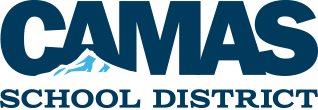Attendance/Homework Information
Parents may get their student’s attendance information, as well as advice on obtaining homework for their student when he/she is absent, by calling the school’s attendance office.
Prearranged Absences
Parents are asked to notify the school in advance when they know their student will be absent. The district recommends one day’s prior notice for each planned day of absence.
Excused Absences
All student absences require a written excuse or direct parent contact with the school. Any student absence that is not excused within three (3) days of the student’s return to school will not be excused (unless approved by an administrator). If a student is absent for five (5) days or more due to illness or health conditions, the school will need a note from their doctor or health provider, or the absence may be classified as unexcused. These same criteria will apply for any pattern of excessive absences. Valid reasons for excused absences include:
- Illness or health conditions
- Absences due to family emergencies
- Absences for participation in a school-approved activity
- Absences resulting from disciplinary action or short-term suspension
- Absences for the observance of a religious holiday
- Absences otherwise permitted by law
All other absences will be considered unexcused and may result in disciplinary action and/or may affect a student’s course grade.
Athletics/Activities Attendance
(Grades 7–12): Students must be present the entire school day in order to be eligible for practice or competition. Exceptions will be made for family bereavement or emergencies, medical/dental appointments, legal appointments, school-related activities, or other excused absences arranged in advance through a building administrator.
Unexcused Absences (Truancy/Skipping)
Because all children in this state between the ages of eight (8) and eighteen (18) are required to attend school, the school district is required to take the actions listed below if a student has an unexcused absence. Under recent legislation, this also applies to students under the age of eight who are attending public schools.
- On the first unexcused absence in any month, the school will notify parents by phone or in writing of their student’s absence. This notification will include the potential consequence of unexcused absences.
- On the second unexcused absence in any month, a conference with both the parent and their student will be scheduled to discuss the reasons for his/her absence and to take steps to correct the situation.
- Not later than the seventh (7th) day of unexcused absence in any month, and not later than the tenth (10th) day of unexcused absence during the current school year, the school is required to file a petition in Juvenile Court alleging a violation of RCW 28A.225.010 “Washington Compulsory School Attendance Law” by the parent/guardian, by the student, or by both the parent/guardian and the student.
- If these efforts fail and the child continues to have unexcused absences, parents may be held in contempt of court and be subject to fines.
Fact Sheet for Families and School Staff: Limitations on DHS Immigration Enforcement Actions at Sensitive Locations
All children have a right to a free public education, regardless of their actual or perceived immigration or citizenship status or that of their parents. Education leaders, teachers, students, and families, have asked questions about guidance that was released by the U.S. Department of Homeland Security (DHS) that limits immigration enforcement actions from occurring at schools and other “sensitive locations.” To respond to those questions, the U.S. Department of Education has worked with DHS to prepare this fact sheet, intended to help parents, families, educators, and other school staff understand the DHS guidance:
English Fact Sheet | Spanish Fact Sheet | Russian Fact Sheet
In general, DHS has explained that immigration enforcement actions may NOT occur at or in “sensitive locations.” These locations include:
- Schools
- School bus stops
- Medical treatment and health care facilities
- Places of worship
- Religious or civil ceremonies or observances
- During public demonstrations
Parents may contact their school principal or attendance office for assistance should they have attendance-related questions.













